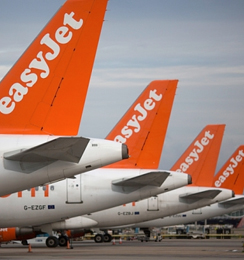Easy Jet to Test Hydrogen Technology on Their Aircraft
LUTON-based easyJet has unveiled plans to trial zero-emission hydrogen technology on its
aircraft.
The low-cost carrier wants to become the first airline in the world to use hydrogen fuel cells on
its aircraft as it seeks to save around 50,000 tonnes of fuel each year.
The technology will work by harnessing the energy produced by an aircraft’s brakes and using
that to power the plane while it is on the ground.
Fresh water would be produced as a waste product and the airline said it could be used to refill
an aircraft’s water system during the flight.
The concept has been developed in partnership with students from Cranfield University who
came up with ideas on what air travel would look like in the future.
Ian Davies, easyJet’s head of engineering, said, “At easyJet, we are continuing to apply the use
of new digital and engineering technologies across the airline.
“The hybrid plane concept we announced recently is both a vision of the future and a challenge
to our partners and suppliers to continue to push the boundaries towards reducing our carbon
emissions.
“It’s also a great example of the benefits of our strategic relationship with Cranfield University.”
Dr. Craig Lawson, a lecturer at the centre for Aeronautics at Cranfield, added, “Cranfield is a
specialist postgraduate university providing advanced, practical education and research.
“Our students have showcased some exciting ideas for the 2035 vision of the airline industry
through The Future of Flight competition, presenting environmental solutions, operational
improvements and ideas to enhance the customer experience.
“We’re looking forward to developing this concept further.”


